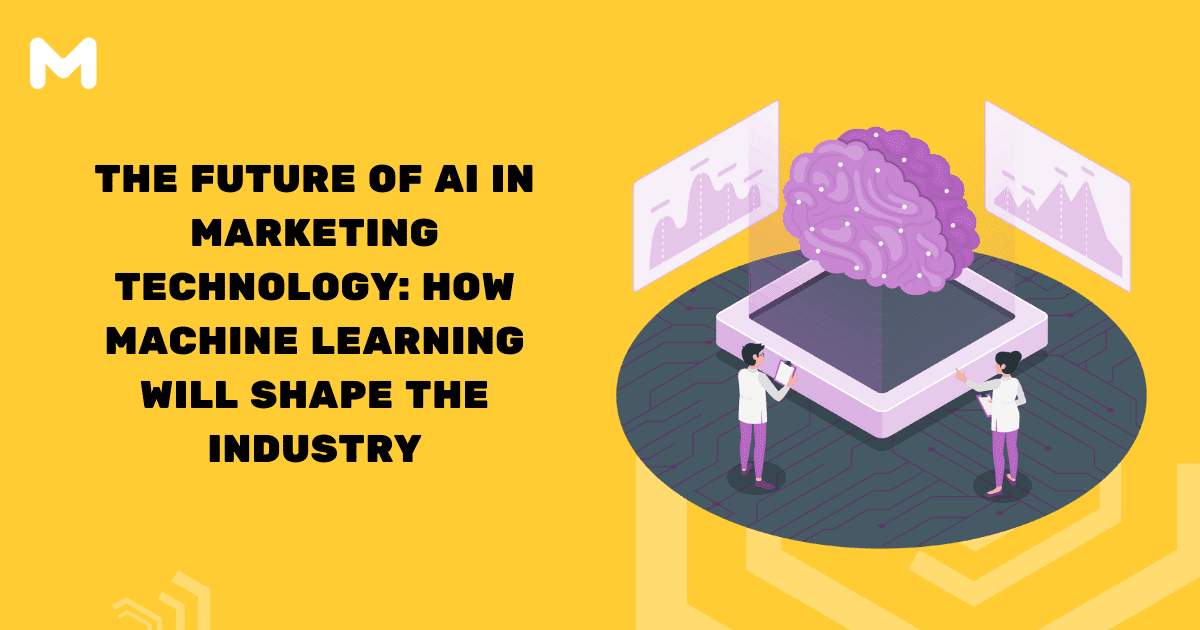Artificial Intelligence, once a science fiction concept, is rapidly becoming an integral part of our daily lives. The constant advancements in technology have enabled AI to become a powerful tool that has already impacted various industries, including marketing. In this blog post, we will explore the future of AI in marketing technology and how machine learning will shape the industry. With its ability to analyze vast amounts of data and predict consumer behavior, artificial intelligence in digital marketing is revolutionizing how brands connect with their audiences. From personalized recommendations and dynamic content creation to advanced customer segmentation, AI is enabling marketers to deliver highly targeted and efficient campaigns. As these technologies evolve, businesses will increasingly rely on AI to stay competitive and meet the ever-changing demands of their customers.
The Rise of AI in Marketing Technology
This revolution has enabled marketers to target their audience accurately and create personalized experiences. AI algorithms can analyze vast amounts of data and identify patterns that would be nearly impossible for humans to recognize. With machine learning, marketers can fine-tune their strategies and create better campaigns.
Machine learning algorithms’ ability to learn and adapt over time is one of the most significant benefits of AI in marketing technology. These algorithms can “learn” from user interactions and optimize their performance accordingly. For example, suppose a marketer is running a social media ad campaign. In that case, machine learning algorithms can analyze the performance data, identify the best-performing ads, and adjust the campaign’s settings to increase its effectiveness.
How AI Assist in Digital Marketing:
Personalization:
AI technologies such as machine learning and predictive analytics can effectively analyze consumer data, thereby enabling marketers to understand customers’ likes, dislikes, preferences, and behaviors. This information allows them to develop personalized campaigns and tailor the customer experience to the individual, which can lead to a higher conversion rate.
Improved Targeting:
AI can provide marketers with customer insights in great detail, including demographic data, purchase history, and social media behavior. Marketers can take advantage of this information to segment their target audience and then create campaigns that will appeal to each group’s individual needs and interests.
Enhanced Customer Experience:
AI-powered chatbots and voice assistants can interact with customers in real-time and provide a personalized experience 24/7. AI chatbots can be used to answer questions instantly, provide a product recommendation based on the customer’s search history, and even assist in making purchases.
Increased Efficiency:
AI can automate repetitive marketing tasks such as lead generation, content creation, and email marketing. This automation can reduce errors, save time and resources, and improve marketing results.
Real-time Analytics:
AI can provide real-time data analytics that enable marketers to monitor campaign performance, track customer behavior, and adjust campaigns accordingly. This data-driven approach improves campaign performance and ROI.
Better Customer Retention:
By analyzing customer data, AI can identify the reasons for customer churn and provide insights on how to prevent it. This information can be used to create campaigns that foster long-term customer loyalty and retention.
Another area where AI is making a significant impact is in customer service. AI chatbots can understand customer queries and provide instant solutions, reducing response time and improving customer satisfaction. With natural language processing (NLP) technology, chatbots can understand complex queries and provide personalized assistance that mimics a human conversation.
AI-powered tools like predictive analytics are also transforming how marketers approach their campaigns. Predictive analytics can analyze vast amounts of data gathered from various sources and make informed predictions about customer behavior, preferences, and interests. With this information, marketers can personalize their campaigns and create a better customer experience.
In conclusion, the future of AI in marketing technology is bright. Machine learning algorithms will continue to shape the industry and enable marketers to create better, personalized campaigns. As AI continues to evolve, it is essential for marketers to stay up-to-date with the latest developments and regulations to ensure they are compliant with SEO rules and regulations. With the right strategy, tools, and expertise, AI can take marketing to new heights and help businesses thrive in the digital age.
